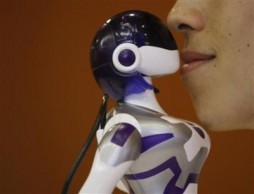This is part four of a five-part article entitled Biology: Not a Science Anymore.
Read Part I Here
Read Part II Here
Read Part III Here
Indeed, the statesmen and social leaders of our generation will face a host of challenges unimagined by Washington, Jefferson, Lincoln, Gandhi, Churchill, or Mother Teresa. Which is why we must be better prepared than any generation before us — in virtue, wisdom, diplomacy and courage.
We must be the best educated of any generation — ever.
Just consider the emerging concept of General Evolution[1], as taught by Meyer and Davis[2].
Whereas micro-evolution means that external pressures, adaptation and mutation lead to evolution within a species, and macro-evolution refers to one species evolving into another, the evolution debate is now infused with a whole new issue.
General Evolution argues that all things, not just biological organisms, evolve along the same lines as Darwin’s micro-evolution.
In short, agents act to create, the creations face selective pressures and either perish or overcome, they overcome by connecting with other agents and then adapting, such adaptation causes them to evolve to a whole new level, where they self-organize, replicate or reproduce, and start over.
In biology the agent is the cell, made up of smaller agents such as proteins. In society the agent is the family, in an economy it is a business, in physics it is an atom, and so on. In the Information Age the agent is software, and if it actually does evolve, then it will naturally meet the criteria of being alive.
This may seem far-fetched, but who is to say that the biology code of G,T,A,C is inherently superior to the binary code of 1 and 0? Both were created or inspired by the same God. Indeed, numerous researchers are currently combining the two.
Interestingly, many of the strongest proponents of both sides of the 20th Century debate over macro evolution versus creationism are natural believers in General Evolution.
The atheistic skeptic already believes that man is god, so why can’t we create other beings in our own image that hopefully are like us in all the good ways but don’t inherit our flaws?
And the religious person believes that God created man, and that He also gave us the gift to create.
 Why then can’t we create smart machines that learn and improve themselves as well as those that just do what the programmer says?
Why then can’t we create smart machines that learn and improve themselves as well as those that just do what the programmer says?
They will never take the place of human beings, just like cats and dogs never take the place of our children — but for people who don’t have children in the home, pets and smart machines might be excellent company.
In any case, in more practical terms, many (if not a majority) of the entrepreneurs of the 21st Century will only succeed if they infuse biology into their companies — in terms of products and especially relationships.
Upcoming Article, Part V: 21st Century Leaders Must Think Biologically
[1] This is clearly mimetic rather than evolutionary.
[2] The ideas in this section found in Op. Cit. Meyer and Davis.






Wow! What an exciting article. I think the idea of general evolution has been around for quite some time. Social Darwinism sounds similar to it, in the sense that it is using natural selection principles outside of the realm of biology.
Did you know that they use the process of natural selection already in creating circuit boards? I will have to find the article and reference it. It is a great read. It is interesting because they create the program, let the computer run wild with it, making generations of circuit boards, they find the ones that work and reverse engineer them to simplify them. They will tend to have random circuits in them that do nothing. The article showed what could be called an ‘appendix’ in one of the circuit boards. It had a lump that stuck out that had no function. ha!